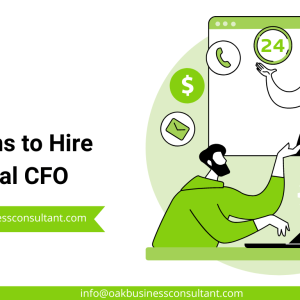Angel Investors vs Venture Capitalists
Angel Investors vs Venture Capitalists: Which One Is Right For You
Introduction
Startups and businesses often face a crucial decision: choosing the right investor. This choice can significantly impact their future. It is important to understand the distinctions between angel investors and venture capitalists.
Angel Investors
Angel investors are wealthy individuals who provide capital for startups, often in exchange for equity. They typically have a personal interest in the business. Angel investments are usually smaller, focusing on early-stage companies. The advantages include more flexible terms and personal mentorship. However, the funding amount is often limited.
Venture Capitalists
Venture capitalists are professional investors, often part of an institutional firm. They invest larger amounts, usually in later funding rounds. Venture capital firms operate with funds from sources like pension funds and limited partners. They offer significant capital and expertise but often require a substantial equity stake and board representation.
Difference Between Angel Investors and Venture Capitalists

The difference between angel investors and venture capitalists is crucial for startups seeking funding. These differences lie primarily in the size of investments, the stage of the company they invest in, and their overall approach and involvement in the business.
1. Investment Size
– Angel Investors: They usually provide smaller amounts of capital, often ranging from tens of thousands to a few hundred thousand dollars. It is because they are private individuals investing their own funds.
– Venture Capitalists: VCs typically deal with larger investments, often in the millions. They manage pooled funds from various sources like pension funds, institutional investors, and high-net-worth individuals, allowing for more substantial investments.
2. Stage of Investment
– Angel Investors: They are known for funding early-stage startups, sometimes even at the idea or prototype stage. These businesses often lack the track record or substantial market proof required by VCs but have high potential.
– Venture Capitalists: VCs usually invest in more established companies. These are often businesses that have moved beyond the initial startup phase and are seeking funding to scale up operations, enter new markets, or develop additional products.
3. Approach and Decision-Making
– Angel Investors: Their decision to invest is often quicker and based on personal interest, belief in the founder’s vision, or the potential of the idea. They may also offer more flexible terms and are sometimes less stringent about immediate returns.
– Venture Capitalists: VCs follow a more structured approach. Their decision-making involves thorough due diligence, market analysis, and consideration of potential returns. They often seek a clear path to profitability and a significant return on investment.
4. Level of Involvement and Control
– Angel Investors: They may offer mentorship and guidance but typically do not seek active involvement in daily business operations. Their control is usually limited, and they might not require a board seat.
– Venture Capitalists: VCs often take a more hands-on approach. They may seek board representation and play a significant role in strategic decisions. This involvement aims to protect their investment and guide the company towards rapid growth and profitability.
Understanding these key differences helps startups align their funding needs with the right type of investor, ensuring a beneficial partnership for both parties.
Choosing the Right Investor for Your Business

Selecting the appropriate investor for your business is a pivotal decision that can significantly influence your company’s trajectory. Here are key considerations to guide you in this process:
1. Assess Your Business Stage
– Early-Stage Companies: If your business is in its infancy, perhaps still fine-tuning its product or service, angel investors are often more suitable. They are typically more willing to take risks on less established companies with unproven models.
– More Developed Businesses: If your company has passed the initial startup phase, demonstrating market potential and maybe even profitability, venture capitalists become more relevant. They look for businesses ready to scale up significantly.
2. Understand Your Funding Needs
– Smaller Capital Requirements: If you need a smaller amount of capital, typically to cover initial operational costs or finalize product development, angel investors are ideal. They provide sufficient funds without heavily diluting ownership.
– Substantial Funding for Growth: For larger capital injections required for scaling operations, expanding market reach, or extensive R&D, venture capitalists are more appropriate. They can provide the substantial funds needed but will likely seek a more significant equity stake.
3. Evaluate Growth Potential and Return Expectations
– High Growth Potential: If your business shows potential for rapid growth and significant returns, venture capitalists might be more interested. They look for opportunities that promise substantial returns on their investment.
– Moderate Growth with Personalized Support: Angel investors might be more inclined towards businesses with moderate but steady growth potential. They often provide not just funding but also mentorship and industry connections.
4. Align Investor and Business Goals
– Long-Term Goals: Ensure that your long-term business goals align with your investor’s expectations. This alignment is crucial for a harmonious and productive relationship.
– Control and Decision-Making: Consider how much control and input you are willing to share. Venture capitalists might demand significant decision-making power, including board representation.
5. Prepare a Compelling Pitch
– Tailor Your Pitch: Customize your pitch to resonate with the type of investor you are targeting. Highlight aspects of your business that align with their interests and investment thesis.
– Demonstrate Value and Potential: Clearly articulate your business value, market opportunity, and growth potential. Be prepared to discuss your business model, revenue streams, and plans for the use of funds.
In summary, choosing the right investor involves a careful evaluation of your business stage, funding needs, growth potential, and the alignment of goals between your business and potential investors. A well-prepared and targeted pitch can significantly increase your chances of securing the right investment partner.
FAQs
How Much Do VCs Invest?
Venture capitalists typically invest larger amounts, often millions, depending on the company’s stage and potential.
What Funding Rounds Do VCs Invest In?
VCs usually invest in later funding rounds, like Series A and beyond, targeting more established companies.
Do You Pay Back Angel Investors?
Angel investors don’t usually get repaid like a loan. They typically receive an equity stake, profiting from the company’s success.
Conclusion
Choosing the right investor for your business is crucial and depends on understanding what each investor type offers. Angel investors are ideal for early-stage startups, providing not only funding but also mentorship and flexible terms. Venture capitalists, however, are better suited for more mature businesses ready to scale, offering larger investments, industry expertise, and strategic guidance, but with expectations of significant returns and greater involvement in decision-making. The decision should align with your business’s stage, goals, and desired investor relationship, balancing immediate financial needs with long-term strategy for success and growth.


























